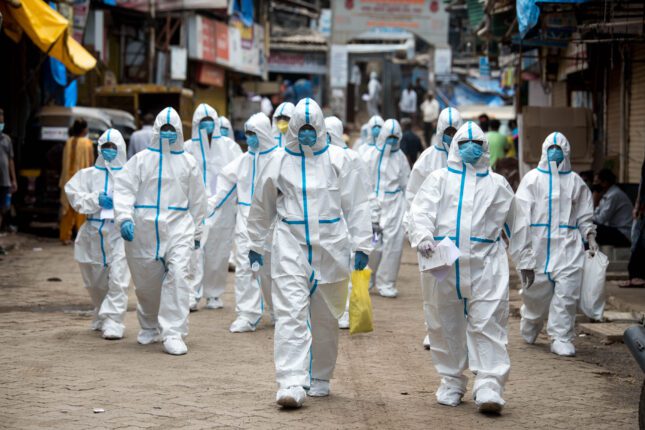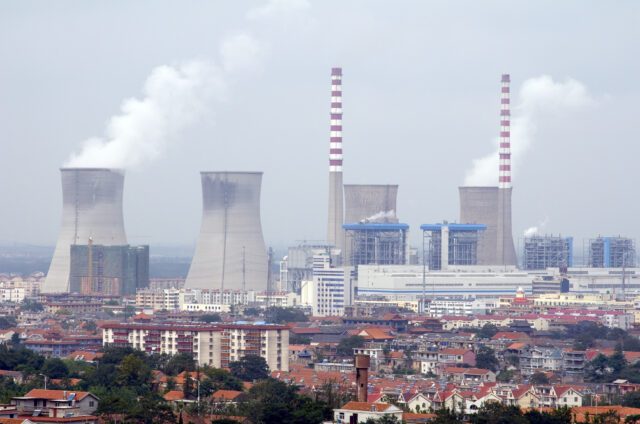-
ECSP Weekly Watch | May 20 – 24
›
A window into what we are reading at the Wilson Center’s Environmental Change and Security Program
Southern Africa’s Drought Offers a Window into the Region’s Climate Future
Southern Africa has been hit by one of its worst droughts in decades, and this calamity highlights the vulnerability of smallholder farmers who rely on rainfed agriculture. For the first time, farmers like Esnart Chogani, who works on a farm just outside Zambia’s capital, Lusaka, were unable to bring in a harvest. The region is normally a major exporter of maize, yet it now has begun importing the grain to meet demand.
-
Building a Response to Environmental Violence
›
Human-produced pollution is the single leading cause of mortality today, yet it is not widely considered a form of violence. On July 28, 2022, the United Nations General Assembly (UNGA) voted—with 161 in favor and eight abstentions—that living in a clean, healthy, and sustainable environment is a human right. Building on a similar declaration by the United Nations Human Rights Council in October 2021, the UNGA has now reinforced the notion that the growing assaults on human health through environmental hazards are transgressions against the basic rights and freedoms of people. Efforts to create a human right to a healthy planet, and even a planetary right to health that would signifying potential rights of nature, are growing both in real activity and demand.
-
Integrating Climate, Peace, and Security in MENA Countries’ NDCs
›
The potential threat climate change poses to peace and security is perhaps nowhere more apparent than in the Middle East and North Africa (MENA). Nationally Determined Contributions (NDCs) are one way MENA countries can address this compound risk.
-
The Arc | Dr. Mizan Khan on Loss and Damage and Bangladesh’s Role as a Climate Adaptation Leader
› In today’s episode of New Security Broadcast, ECSP’s Claire Doyle and Angus Soderberg speak with Dr. Mizan Khan, Technical Lead at the Least Developed Countries Universities Consortium on Climate Change. Dr. Khan was formerly the Deputy Director at the International Center for Climate Change and Development (ICCCAD), a research institute based in Bangladesh.
In today’s episode of New Security Broadcast, ECSP’s Claire Doyle and Angus Soderberg speak with Dr. Mizan Khan, Technical Lead at the Least Developed Countries Universities Consortium on Climate Change. Dr. Khan was formerly the Deputy Director at the International Center for Climate Change and Development (ICCCAD), a research institute based in Bangladesh.Dr. Khan describes Bangladesh’s vulnerability to climate change and its unique role as an adaptation leader. He also discusses what he believes the core principles of the Loss and Damage Fund should be, and the legacy of the late Dr. Saleemul Huq.
-
ECSP Weekly Watch | May 13 – 17
› A window into what we are reading at the Wilson Center’s Environmental Change and Security Program
A window into what we are reading at the Wilson Center’s Environmental Change and Security ProgramUN World Wildlife Crime Report Reveals Harm of Wildlife Trafficking (UN Office on Drugs and Crime)
In the third World Wildlife Crime Report, the UN Office on Drugs and Crime (UNODC) discussed trends in illicit trafficking of protected species, analyzed wildlife crime harms and impacts, and took stock of all current knowledge on intervention effectiveness. This report is more comprehensive than its predecessors in 2016 and 2020 due to increased reporting. Despite 20 years of effort, wildlife trafficking persists and is connected with powerful organized crime groups operating in fragile ecosystems. This has implications not only for the spread of organized crime, but also for biodiversity loss and subsequent impacts on climatic fragility.
-
Climate, Conflict, and Changing Demographics Command Attention in New Global Health Security Report
›
A new report by the US Intelligence Community highlights what the world stands to lose if it fails to cooperate on global health. The National Intelligence Estimate (NIE) “Dynamics Shaping Global Health Security In the Next Decade” outlines the dire effects of climate change, changing demographics, and the erosion of trust in institutions on global health security. The NIE on Global Health Security was made publicly available in April 2024, on the heels of the Biden-Harris Administration’s launch of a new Global Health Security Strategy.
-
Don’t Panic US: China’s Nuclear Power Ascendancy Has Its Limits
›Like bamboo sprouts after the rain, nuclear reactors are going up quickly across China. There are 36 reactors under development, and Beijing can approve as many as 10 new ones a year. Within a decade, China will likely pass the United States—which has 93 operating commercial nuclear reactors at 54 power plants—as the world’s biggest generator of nuclear power.
-
Key Takeaways from the Innovations in Climate Resilience Conference
›
Historically, efforts to mitigate climate change have taken precedence over building resilience to its impacts. But from Pakistan to the Amazon, communities on the front lines are already experiencing the devastating effects of a warming world.
In recent weeks, devastating floods have claimed the lives of over 450 people in East Africa, as heavy rains linked to El Niño and changing climate patterns overwhelmed communities and infrastructure. Similar tragedies unfolding in Brazil, Pakistan, and Afghanistan underscore the human cost of being unequipped to protect against the worst impacts of climate change.
Showing posts from category meta.




 In today’s episode of New Security Broadcast, ECSP’s Claire Doyle and Angus Soderberg speak with Dr. Mizan Khan, Technical Lead at the Least Developed Countries Universities Consortium on Climate Change. Dr. Khan was formerly the Deputy Director at the International Center for Climate Change and Development (ICCCAD), a research institute based in Bangladesh.
In today’s episode of New Security Broadcast, ECSP’s Claire Doyle and Angus Soderberg speak with Dr. Mizan Khan, Technical Lead at the Least Developed Countries Universities Consortium on Climate Change. Dr. Khan was formerly the Deputy Director at the International Center for Climate Change and Development (ICCCAD), a research institute based in Bangladesh.




